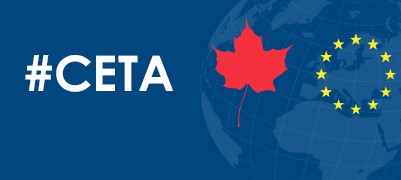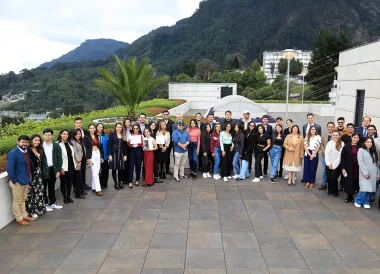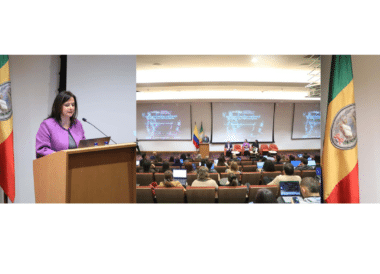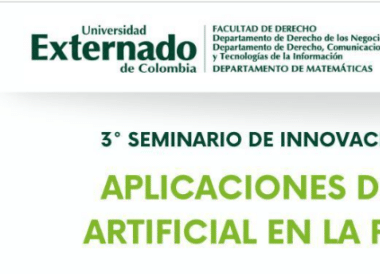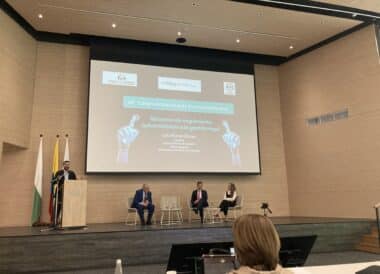15 de junio de 2016
Investment dispute resolution in the Comprehensive Economic and Trade Agreement (CETA) negotiated between Canada and the European Union. A reference for the Colombian case?
The Comprehensive Economic and Trade Agreement (hereafter, “CETA”) is a Free Trade Agreement renegotiated between Canada and the European Union (EU). The negotiations for CETA are finalized, and according to a recent official declaration from Canada and the EU, it is expected that its signature will be this year. Therefore, this treaty will enter into force in 2017.
The Comprehensive Economic and Trade Agreement (hereafter, “CETA”) is a Free Trade Agreement renegotiated between Canada and the European Union (EU). The negotiations for CETA are finalized, and according to a recent official declaration from Canada and the EU, it is expected that its signature will be this year. Therefore, this treaty will enter into force in 2017.
This working paper will describe the main novelties in CETA regarding investment dispute resolution, specifically to those topics referring to the investor-State mechanism. Later, this document will provide some ideas as a reference for the Colombian case.
CETA shows a synthesis of two parties’ positions, whose relevance as capital exporters and importers makes them true protagonists in the International Investment Agreements system in the world.
First Instance Tribunal
As part of an innovative mechanism of dispute resolution, CETA establishes a system formed by permanent members with whom tribunals are constituted. They are focused on solving first instance disputes derived from an investment covered by this treaty.
Some of the most outstanding aspects about this first instance tribunal are:
(i) CETA’s Joint Committee will nominate 15 members at the date in which the treaty enters into force. Out of those 15 members, 5 will be European Union nationals, 5 Canadian nationals, and 5 of other nationalities. They will be appointed for 5 -and -6 years- terms, with a possibility of being re-elected once;
(ii) Specific controversies will be heard initially by a tribunal (3 appointed members out of the group of 15 permanent members);
(iii) However, the claimant may request for the controversy to be heard by only one member, when it is claim from a small or medium-size company. Or when compensation or indemnity being claimed is relatively low in cost.
(iv) CETA gives flexibility for the Joint Committee to increase or decrease the number of eligible members for first-instance tribunals, as long as the tribunal is formed by an uneven number of members.
(v) CETA refers various logistic and administrative topics to the International Center for Settlement of Investment Disputes (ICSID). For example, it relies on ICSID administrative and financial instruments in order determine legal fees for tribunal members to hear about disputes in the first instance, as well as for secretarial work. In order to guarantee their availability, these payments will be handled in an account managed by ICSID.
The Appeals Tribunal
Additionally, CETA orders the creation of an Appeals Tribunal. This Tribunal will hear about the decisions of first-instance tribunals. It may confirm, modify or revoke those decisions for the following reasons: errors in the application and interpretation of applicable law; manifest error in fact appreciation, including appreciation of national law relevant to the dispute; and whenever there are grounds for annulment contained in article 51(1) of the ICSID Convention.
For specific regulations about the operation at the appeals instance, CETA assigns them to the treaty’s Joint Committee. It will make the decision about determining the number of members of the appeals tribunal, among other aspects.
Multilateral Investment Tribunal and Appeals Mechanism
CETA determines that the European Union and Canada will strive for the establishment of a multilateral investment dispute resolution system with other trade partners.
If this multilateral system were to be established, it would replace, both, the first-instance tribunal, as well as the appeals tribunal previously described.
CETA as a reference for the Colombian case
We consider that CETA is a reference for the Colombian case for the following reasons:
i) With the embodiment of CETA, there is an innovative precedent for the implementation of a second hearing system in investment disputes derived from international treaties.
ii) CETA’s purpose is to create a Multilateral Investment Tribunal with an appeals mechanism. This initiative breathes new life for Colombia and other States part of the Union of South American Nations (USAN)’s “South-American project for a system of investment dispute resolutions” to review their positions about creating a regional or multilateral mechanism for investment dispute resolution.
iii) Choosing a mechanism such as CETA’s does not imply denouncing the ICSID Convention for Colombia. This, given that CETA’s system is coordinated with several administrative services offered by ICSID, and it also refers to the grounds for annulment in the ICSID Convention
iv) In the same sense, several International Investment Agreements (IIA) concluded by Colombia foresee the coordination between investment arbitration agreed upon in the specific treaty, with the establishment of a multilateral, as well as an appeals mechanism. This is the case of subparagraph 10, of article 9.20 of the Free Trade Agreement (FTA) concluded between Colombia and Chile; subparagraph 15 of article 25 of the BIT concluded between Colombia and Peru; as well as subparagraph 10 of article 10.20 of the FTA concluded between Colombia and the United States.
v) Although none of the IIA Colombia has concluded with Canada and the European Union foresee the possibility of coordinating a multilateral system for dispute resolution, these economic blocks have stated their interest in moving forward in this sense before the international community due to CETA’s negotiation.
vi) Finally, CETA’s provision of having a tribunal with a sole member may be a way to provide better access to protection for Colombian investors abroad. This is coherent with the Strategy for the Promotion of Colombian Direct Investment Abroad, contemplated in CONPES document No. 3771 of 2013.
CETA constitutes an important precedent for Colombia and its trade partners, as well as for USAN’s countries to find inspiration as to how to re-evaluate dispute resolution in International Investment Agreements.
CETA’s text can be found at: http://trade.ec.europa.eu/doclib/docs/2016/february/tradoc_154329.pdf
Should you have any comments or ideas regarding this “work document”, you may contact the author at: andres@cardenasmunoz.com
Artículos Recientes
¡Ya está disponible el caso! Segunda versión del Concurso Laboratorio de Estrategia Legal #LSL
Invitamos a los estudiantes de pregrado y postgrado de todas las carreras a presentar [...]
Masterclass Legal Operations: Transformando la Función Legal Empresarial de Guardián de Riesgos a Creador de Valor.
El Departamento de Derecho de los Negocios y la Facultad de Administración de Empresas [...]
Conclusión del Proceso de Reforma al Investor-State Dispute Settlement
En la semana del 12 de julio de 2023, durante la sesión anual de [...]
El Departamento de Derecho de los Negocios de la Universidad Externado de Colombia abre convocatoria para la vacante de Asistente de Investigación
¡Sé parte de nuestro equipo de trabajo! Perfil del cargo: Asistente de Investigación Apoyar [...]
Docente del Departamento de Derecho de los Negocios participó en el libro Blanco de la Asociación de Derecho Internacional
La Asociación de Derecho Internacional (ADI), una de la organizaciones más antiguas y prestigiosas [...]
CRYPTO IN COLOMBIA: PROSPECTIVE 2022
By: Daniel Peña Valenzuela The volatility of the main cryptocurrencies seems to be once [...]
Convocatoria de Monitores.
El Departamento de Derecho de los Negocios se complace en anunciar la apertura para [...]
¿Se avecina una regulación de la Franquicia por parte del Gobierno? ¿O lo impedirá la Corte Constitucional?
Por: Juan Miguel Álvarez* y Diana Marcela Araujo* En diciembre del 2020, el congreso [...]
Ciclo de seminarios de Innovaciones en Justicia Digital: un espacio desde la academia que replantea el futuro del sistema de justicia.
El Seminario en Innovaciones en Justicia Digital es un evento de la Universidad Externado [...]
Rostros de mentira: Retos legales producidos por las ‘Deepfakes’
Palabras clave: Deepfake, IA, contenidos audiovisuales, redes generativas adversarias, derecho probatorio, intimidad personal. Una [...]
Memorias: Tercer seminario de innovaciones en la justicia digital- aplicaciones de la inteligencia artificial en la práctica judicial.
El pasado 19 de septiembre de 2024, las instalaciones de la Universidad Externado fueron [...]
Celebramos la realización del 40º Congreso Nacional de Derecho Comercial: Novedades y retos de la contratación mercantil y del arbitraje comercial
El pasado 30 de octubre, en Medellín, se celebró el 40º Congreso Nacional de [...]


